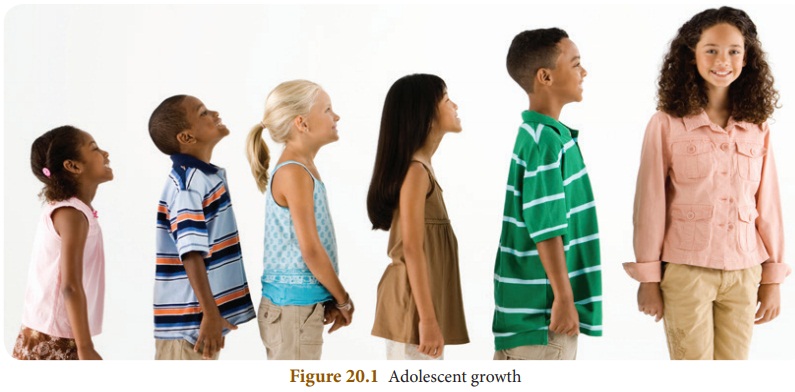Reaching the age of Adolescence | Chapter 20 | 8th Science - Adolescence and Puberty | 8th Science : Chapter 20 : Reaching the age of Adolescence
Chapter: 8th Science : Chapter 20 : Reaching the age of Adolescence
Adolescence and Puberty
Adolescence and Puberty
The term adolescence is derived from
the Latin word ‘adolescere’ meaning ‘to grow’ or ‘grow to maturity’. During
this period changes occur in height, weight, sex organs, muscle mass as well as
in brain structure and function. Biologically it is a physical transition
marked by the onset of puberty and termination of physical growth in an
individual.
Puberty
Puberty is a period of few years in
which rapid physical; physiological and psychological changes occur resulting
in sexual maturity. We can predict the sequence of physical changes that will
take place but the age of beginning of puberty varies from individual to
individual. The average age for the onset of puberty is 10 or 11 for girls and
12 or 13 for boys. But, factors like genetic and biological influences, life
events, socio-economic status, nutrition and diet and the amount of body fat
also affect the onset and progression of puberty.
Hormones play an important role at
the time of puberty. Changes in hormones during this period trigger physical
and behavioural changes. Sex hormones secreted at the time of puberty activate
the male and female sex glands to produce necessary secretions in the body. The
male sex glands, testes release the testosterone and the female sex gland, the
ovaries release the estrogen. These result in changes in the primary and
secondary sexual characteristics of the male and female.

Body changes at
Puberty
Four impotant changes that occur
during puberty transform the body of a child into that of an adult. These
changes are:
• Changes in body size
• Changes in body proportion
• Development of primary sex
characteristics
• Development of secondary sex
characteristics
a. Changes in body
size
The first major change at the time
of puberty is growth which is the increase in body height and weight. It
usually begins at the age of 10 to 12 in girls and 12 to 13 in boys. It is
almost complete at around the age of 17 to 19 in girls and 19 to 20 in boys.
During adolescence both boys and girls add around 23 cm to 26 cm in the height.
In addition to height, they also experience significant increase in weight. But
increase in weight is influenced by various factors like diet, exercise and
life style. The average weight gain during this period is about 17 kg to 19 kg.
During this period, increase in fat is seen in girls in contrast to muscle
development in boys.
b. Changes in body
proportion
Certain body areas which are small
proportionately grow big. This can be seen in feet and hands. During childhood,
legs grow proportionately more than the trunk. But at the time of puberty trunk
also lengthens. Also, trunk broadens at the hip and shoulder thus giving the
adult proportion to the body.
Activity 1
Divide the students in
your class into different groups (Form separate groups for boys and girls).
Measure the height and weight of all the students in each group and find out
the average. Record your observations in your notebook.
c. Primary sex
characteristics
Reproductive organs of boys and girls become fully functional at the time of puberty. In boys, testes grow larger followed by that length and size of the reproductive organ increase.
Similarly, female reproductive organ
also grows during puberty. Thus, the size of the uterus and the weight of the
ovaries increase during this time.
Testes and ovaries are
called primary sex organs of the male and female respectively.
Related Topics